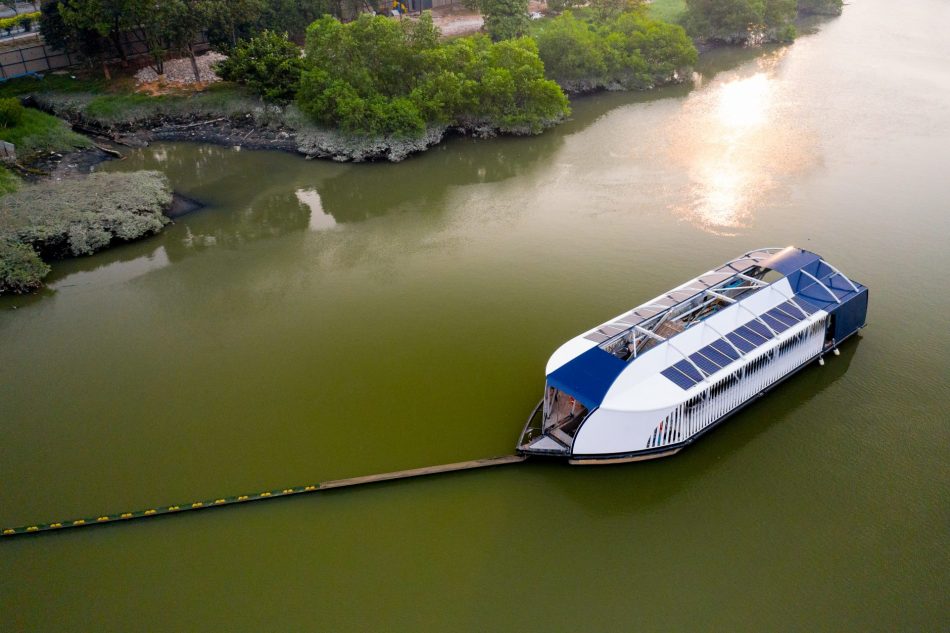After successfully capturing and collecting its first debris from the Great Pacific Garbage Patch a couple of weeks ago, the Ocean Cleanup just announced a new device to catch plastic before it flows into the ocean.
Called The Interceptor, the device is a solar-powered barge that’ll be anchored to riverbeds to autonomously catch plastic as it flows along. The rivers being targeted are “responsible for about 80% of ocean plastic pollution”, according to a press release, with the goal being to finish the cleanup before the year 2025 is out.
The nonprofit says the Interceptor can extract 110,000 pounds of trash per day and could potentially collect double that amount under optimized conditions. What’s more, the device is designed to be environmentally friendly: it’s solar-powered, with lithium-ion batteries allowing it to work day and night without producing noise or exhaust fumes.
Right now, two such machines are operating in Indonesia and Malaysia, while a third one is preparing to begin operation in the Mekong Delta, Vietnam.
We covered Boyan Slat and his work earlier this month. It’s exciting to see how his innovative ideas are coming to fruition.












